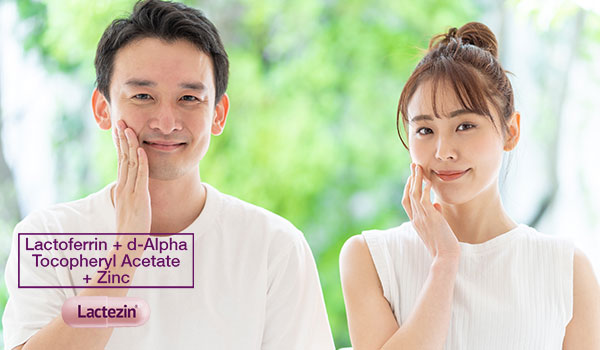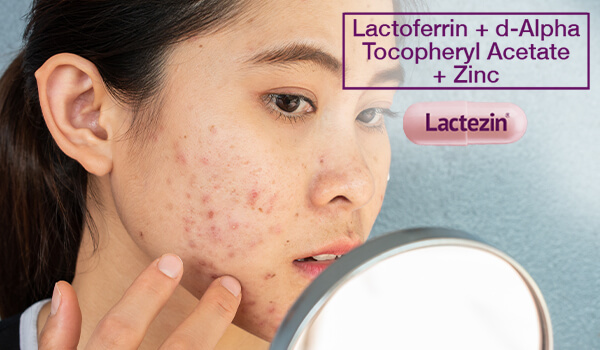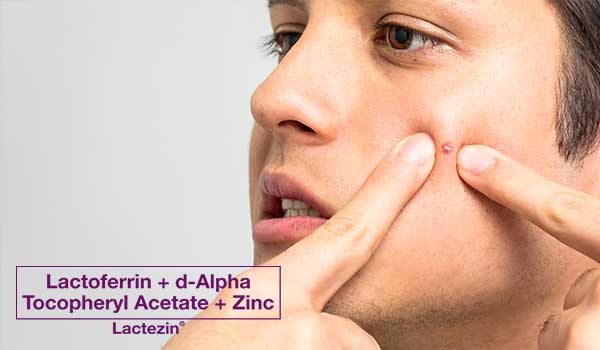Female and Male Acne: Know the Difference & Treatments

Male acne in 20s or what others call male midlife acne is more common than you think. Both men and women experience acne which can occur well into the later years past puberty. Read about adult acne, and how acne in men is different from acne in women, along with suggestions for treatment.
Acne: A Refresher on the Causes and Risk Factors
Before diving into how different female and male acne are, remember that these are the common culprits behind pimples, blackheads, whiteheads and other types of acne.
- Excess Sebum. Sebum or oil produced by the skin’s sebaceous glands can trigger the occurrence of acne. Especially when there is excess production of it, sebum may pool and block pores.
- Hormonal imbalance. Hormones, their behavior and their production can influence your skin appearance and may cause acne. Hormones such as androgens and cortisol are known to trigger the overproduction of sebum on skin.
- Diet. What you eat plays a role in skin’s health and appearance. For example, dairy and high-glycemic food such as milk, bread, rice and deep-fried food are found to cause or worsen acne. This is because carb-heavy food increases your blood sugar, to which the body responds and triggers the release of insulin. Along with the signal to produce insulin is the cue for the skin’s sebaceous glands to produce sebum. As previously mentioned, the more sebum the skin produces, the more chances of acne breakouts.
- Genetics. If your parents or the elderly in the family consistently has problems with acne, there’s a good chance that your pesky acne woes are due to genetics.
Note that acne occurrences do not end in puberty. Adult acne, for females and males in and beyond their 20s, is very real with genetics, a bad diet and hormonal changes brought about by stressful situations. In fact, clinical studies show that around 40-55 percent of adults aged 20-40 are diagnosed with low grade, persistent acne as well as oily skin.
Acne in Women vs. Acne in Men
Although the causes and risk factors are true for everyone, it has to be factored in that men’s skin behaves differently from that of women. And this is mainly where the difference in acne and suggestions for treatment root from.
-
Female Acne
Women have a more complex hormonal makeup (with varying levels on an almost constant basis) than men do. Fluctuations in estrogen and progesterone levels are primarily the reason behind what others call “PMS pimples” or pimples that appear a week before their period. Acne flare ups also tend to happen during pregnancy, perimenopause and menopause, thanks to the hormonal shifts.Hormone levels become even more disrupted when birth control pills are taken during the menstrual cycle and menopause.
-
Male Acne
More oily, sweaty with larger pores, men’s skin can be more acne prone than women’s skin. But just like with women, hormone levels are the main trigger. Testosterone, an androgen, is the hormone that’s responsible for giving males masculine characteristics such as a deep voice and bigger muscles. Testosterone stimulates the production of sebum, which explains its role with the development of acne.While acne in women is more confined on the facial area, men tend to have acne on the face, neck, chest, back, upper arms and shoulders. Sweating increases the severity, especially after exercise or during warmer months.
As with women, acne in men can and will develop with males in their 20s and beyond. Due to the nature of their skin, acne in men tends to appear more frequently and, although further research is needed, lasts a bit longer than acne in women.
Treating Acne in Men and Women
The good news is that both acne in men and acne in women are treatable. Check out these suggestions.
-
Use the Right Skin Care Products
Arm yourself with skin care products that work. True for both men and women, the market is bombarded with options, and looking for what works can be difficult. The trick is to take your time on understanding your skin’s needs and on research on what ingredients are in products.For women, cleansers, toners and creams that are gentle and mild are preferred, while for men, products with oil-regulating properties will definitely help. It’s important to know that men and women’s skin care products are often not interchangeable. Those for women may be too mild for men, and those for men may be too harsh for women.
-
Follow a Good Skin Care Routine
There’s no denying that the good old trio of cleansing, toning and moisturizing does wonders for your skin’s health and appearance. It’s not just important to have this basic three, it’s essential to build a habit of doing it daily. Women might have more steps in their skin care routine. Men on the other hand will have to make time for this short ritual in the evening or whenever in the day. Just like in working out, consistency is key to getting to your skin health goals.. -
Try Over-the-Counter Topicals or Medication
For stubborn acne such as that which may result from men’s naturally oily skin, experts recommend the use of over-the-counter products that carry ingredients studied to be useful in treating acne. A few of these ingredients are:- Retinoids are a class of compounds extracted from Vitamin A. They are best known for their effectiveness in freeing pores of dirt and debris.
- For treating and preventing inflammatory acne, benzoyl peroxide targets bacteria.
- Salicylic acid is a beta-hydroxy acid (BHA) that helps flush out dead skin cells from pores.
- Over-the-counter drug Lactezin is formulated to treat and prevent pimples with lactoferrin for addressing damage caused by acne, vitamin E for keeping skin cells healthy, and zinc that helps regulate sebum production.
Get your acne questions answered with expert pimple care tips and advice, only from Lactezin.
SOURCES:
https://www.laroche-posay.co.uk/en_GB/are-men-and-women-equal-when-it-comes-to-acne.html
https://www.westdermatology.com/news/the-difference-between-male-female-acne
https://scalemusiccity.com/why-female-acne-is-treated-different-than-mens/
https://www.healthline.com/health/skin/acne
https://lactezin.com/understanding-adult-acne
https://www.ncbi.nlm.nih.gov/pmc/articles/PMC3935648/
https://www.healthline.com/health/does-testosterone-cause-acne


